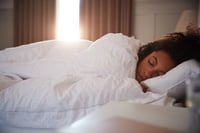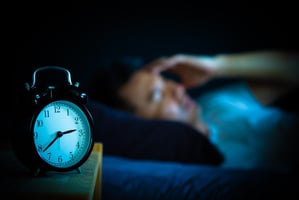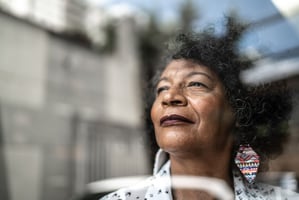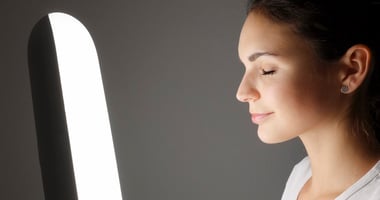Electroacupuncture May Lessen Insomnia, Improve Mental Health in People With Depression

Electroacupuncture may improve sleep quality and mental health in patients who have insomnia and depression, a study in JAMA Network Open has found. Electroacupuncture is a form of acupuncture that involves passing a small electric current between pairs of acupuncture needles.
Xuan Yin, M.D., of the Shanghai University of Traditional Chinese Medicine and colleagues studied data from 247 adults aged 18 to 70 years who had depression and insomnia. All patients received standard care, which included recommendations by psychiatrists to get regular exercise; eat a healthy diet; manage their stress; and continue taking their prescription medications, such as antidepressants, sedatives, or hypnotics. The patients were divided into three groups. One group received only standard care (the control group), one group received three electroacupuncture sessions per week for eight weeks, and one group received three sham acupuncture treatments per week for eight weeks. The researchers measured the patients’ sleep quality via the Pittsburgh Sleep Quality Index (PSQI) and the patients’ mental well-being using the 17-item Hamilton Depression Rating Scale (HDRS-17) at baseline and at 4, 8, 12, 20, and 32 weeks.
At the fourth week, PSQI scores dropped a mean of 3.4 points from baseline in the electroacupuncture group, 1.5 points in in the sham acupuncture group, and 0.6 points in the control group. At the eighth week, PSQI dropped a mean of 6.2 points from baseline in the electroacupuncture group, 2.5 points in the sham acupuncture group, and 1.1 points in the control group. The electroacupuncture group maintained a significantly greater decrease in PSQI than the other two groups through the study’s end.
At the fourth week, HDRS-17 scores dropped a mean of 7.0 points from baseline in the electroacupuncture group, 3.7 points in in the sham acupuncture group, and 1.3 points in the control group. At the eighth week, PSQI scores dropped a mean of 10.7 points from baseline in the electroacupuncture group, 5.0 points in the sham acupuncture group, and 1.9 points in the control group. The electroacupuncture group maintained a significantly greater decrease in HDRS-17 than the other two groups through the study’s end.
“In the present trial, [electroacupuncture] treatment with standard care was clinically beneficial and superior to [sham acupuncture] and/or standard care for treating insomnia and helped patients to improve their mental health status,” Yin and colleagues wrote.
For related information, see the American Journal of Psychiatry article “The Evolving Nexus of Sleep and Depression.”
(Image: iStock/monkeybusinessimages)







